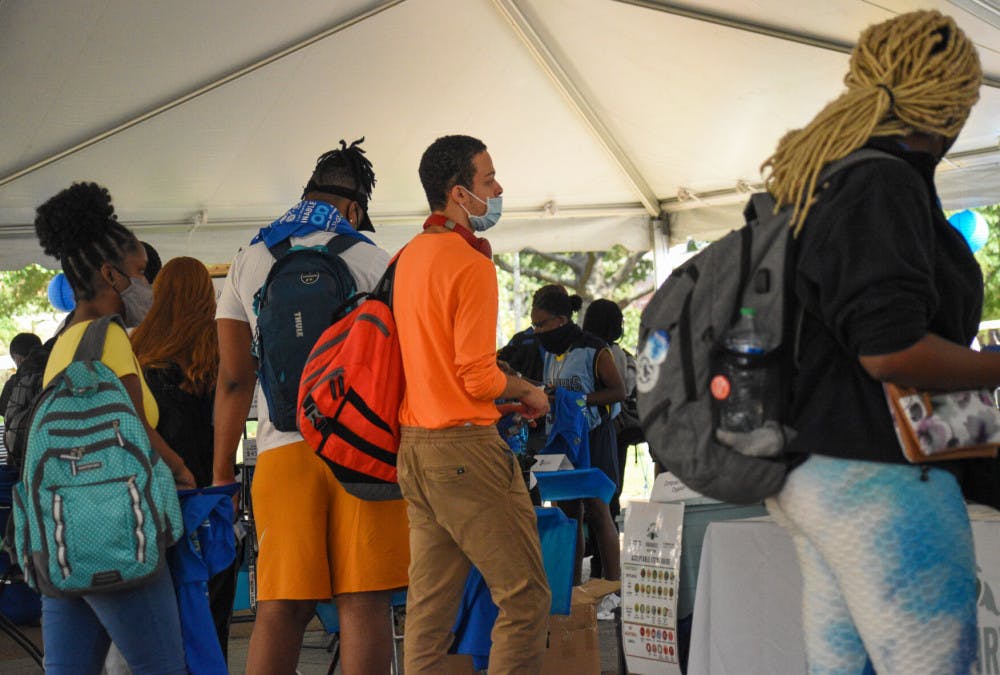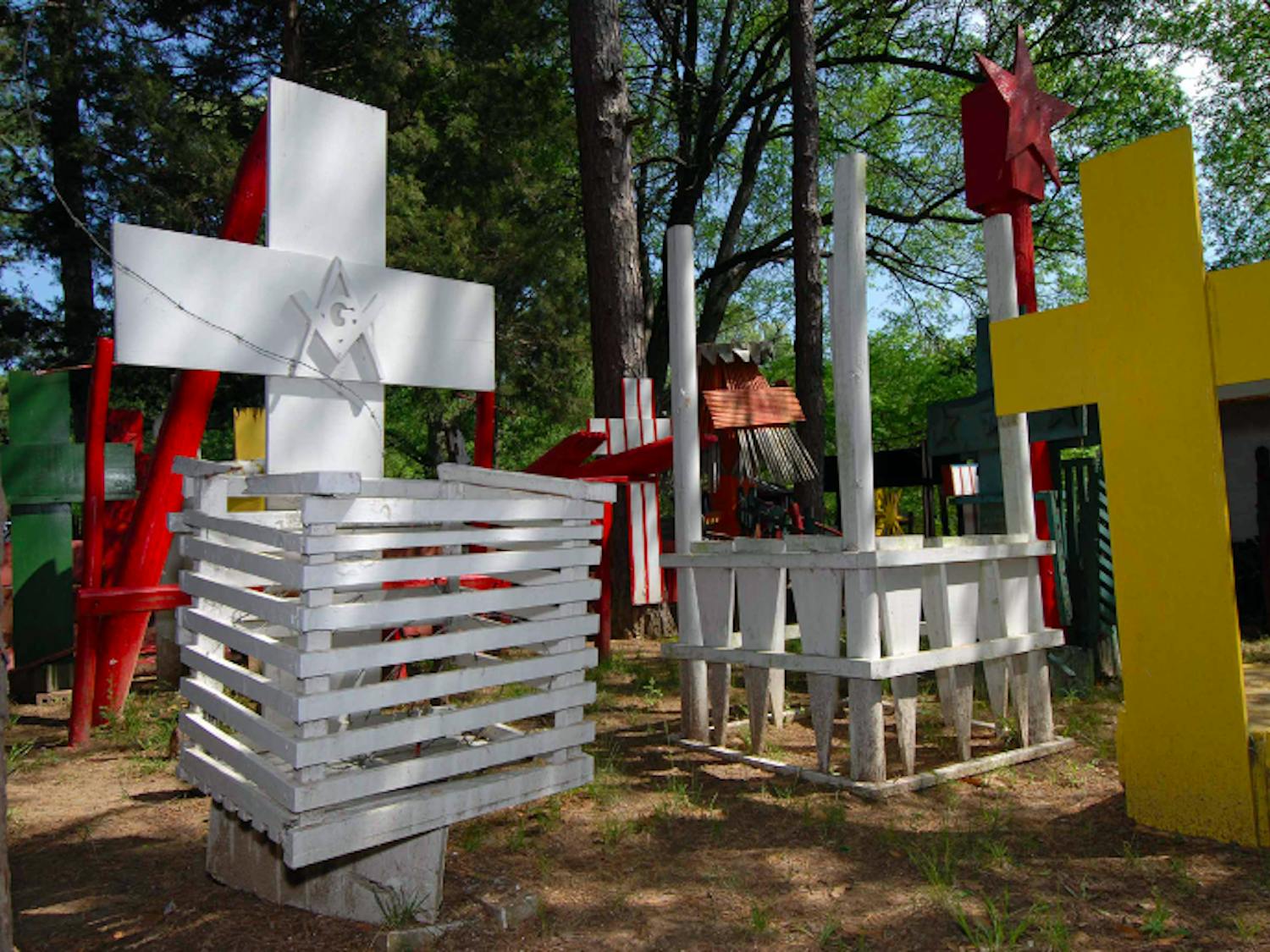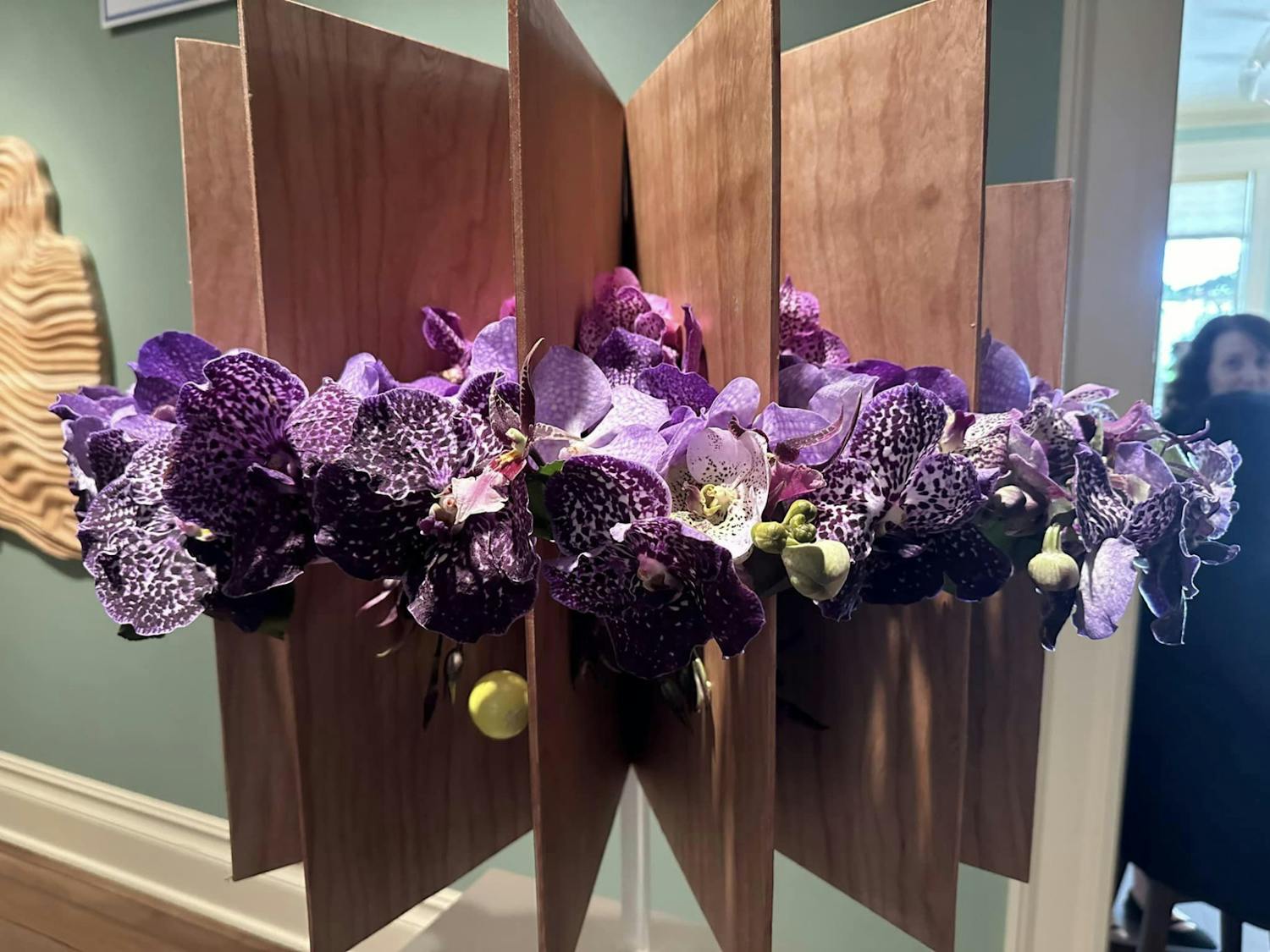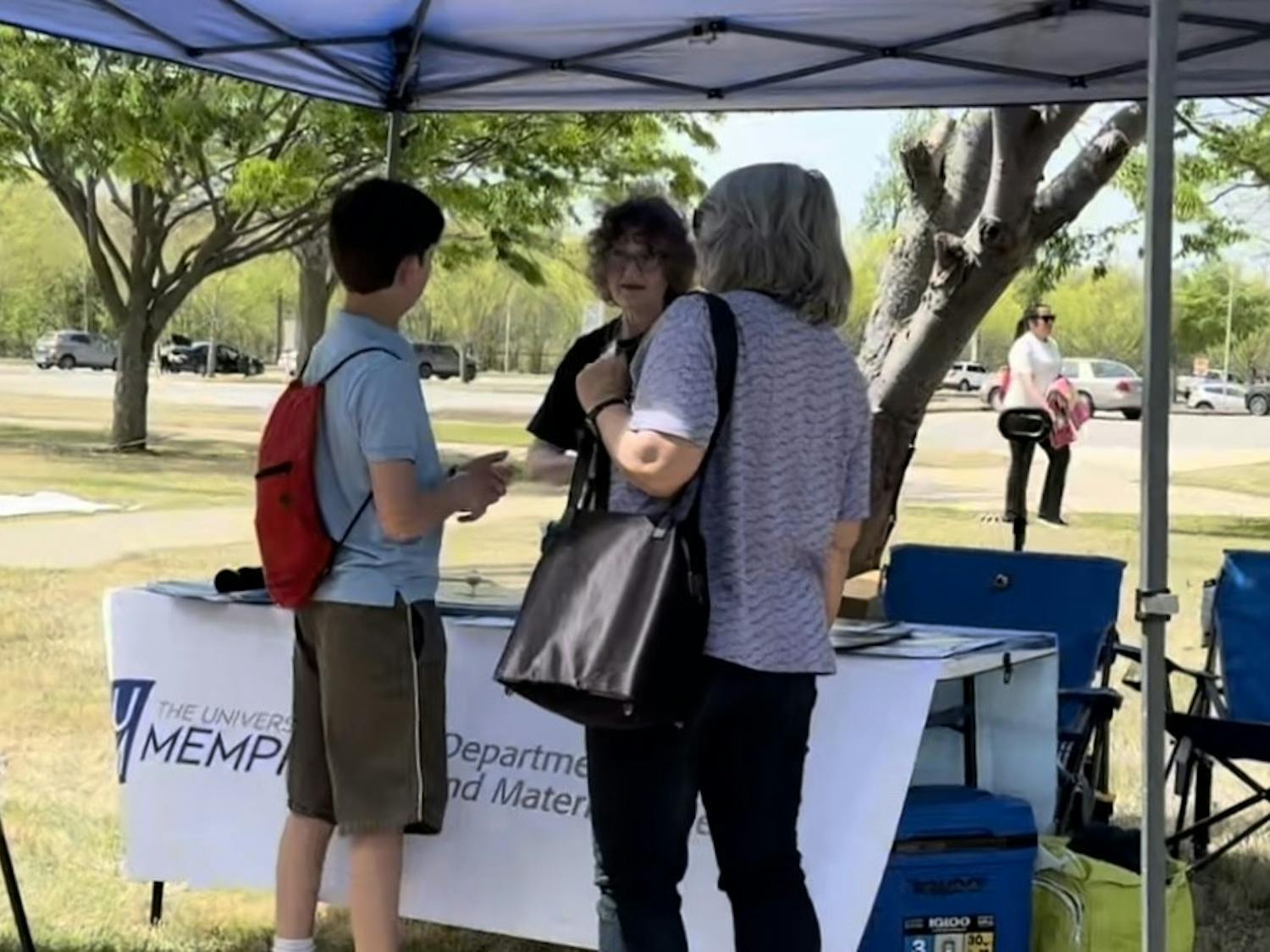Standing behind her table, Nancy Chung reached for the mini-Snickers bar that was in front of her and raised it in the air.
“Some people think that things actually break down in the landfill,” she said. “They do not. After 20 years, you will still find this Snickers bar.”
If it were to be composted, however, everything except the plastic would be turned into soil in as little as 120 days, she explained.
Chung is a board member at the Compost Fairy, a Memphis-based compost service founded in 2018 that collects residential and commercial waste from around the city and “magically” transforms it into compost.
The Compost Fairy was one of several local organizations present at the 13th annual Tiger Blue Goes Green event Tuesday.
The event is an annual exhibition fair where local businesses as well as representatives from the campus community can come and showcase their efforts toward sustainability.
This year’s theme was focused on sustainable food systems. More specifically, it was tailored toward giving broader access to healthy and nutritious food and how to do it in the most environmentally friendly way possible.
According to Clean Memphis, a local organization founded in 2008 that focuses on environmental and sustainability initiatives in the city, 19 percent of Memphians currently struggle with food insecurity. Although composting can’t directly provide food to Memphians in need, it can help fight other environmental issues like global warming.
In 2018, food was the single largest material to reach landfills and combustion facilities out of any other material found in everyday solid waste, at 24 percent and 22 percent respectively, according to the U.S. Environmental Protection Agency.
The EPA also reported that landfills were the third largest contributor to methane emissions in the US in 2019 at 17 percent. When food is thrown away like normal, it rots and releases methane, a greenhouse gas that can contribute to global warming.
When it is composted, however, it breaks down and creates a nutrient-rich substance that can then be used to fuel new plants. Although making soil from ordinary food waste may be a viable solution to helping the environment, for some, it’s not even necessary.
New Way Aquaponic Farms, a local aquaponic farm started in 2017, takes soil completely out of the equation.
“As you know, you can’t have a fish tank without a filter, but I don’t have a filter,” said founder Daryl Levin. “I’ve got a bio filter between the bacteria and the plants.”
Aquaponics is a method of farming where the urine and feces of fish are converted into plant nutrients to help them grow. The name is a combination of two other agricultural terms: aquaculture, which refers to fish farming and hydroponics, which is a method of growing plants without soil.
Levin said that one of the biggest benefits to aquaponic farming is being able to grow food year-round right at home instead of waiting on produce to come in from other states.
“Instead of getting things from California, Florida or Texas, you can get it right here in Memphis,” he said.
At the height of the pandemic, the Compost Fairy doubled its base from 300 to 600 clients. Despite that, Chung said that two main challenges persist with getting more people to start composting: a lack of access and a lack of education.
“I’ve worked with cities like Dyersburg, oh my gosh,” she said, “they would love to have the ability to be able to compost, but they don’t because they’re so far from services and never mind residential.”
Outside of having access to composting services, the word about composting simply needs to get out.
“We can’t do it on our own. It requires everybody collaborating together.”
A group of students at Tiger Blue Goes Green.




